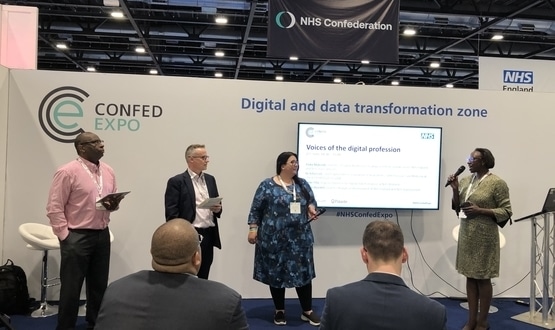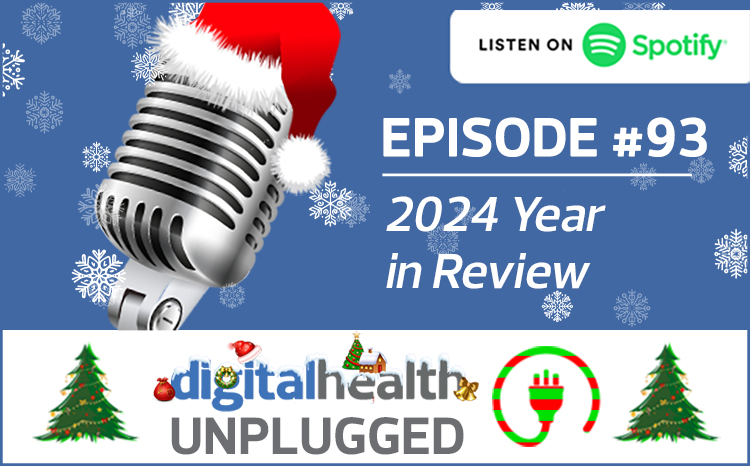NHS wants more undergrads and young people to pursue careers in digital and data
- 15 June 2022

The lead for analytical development at NHS England and NHS Improvement has said the organisation is trying to ensure that more undergraduates and young people want to pursue careers in digital and data in the NHS.
This year’s NHS ConfedExpo included a panel session called ‘Voices of the digital profession’, which focused on the importance of digital and data roles in the NHS.
Sarah Blundell, lead for analytical development at NHS England and NHS Improvement stressed that there is no clear career path that links digital and data with the NHS and wants to see job titles that incorporate digital on the NHS website, as currently these jobs are hidden amongst others.
She emphasised that NHS England are “trying to change the culture and mindset so that data is for everybody” and wishes for a national apprenticeship scheme to encourage more undergraduates and young people to pursue careers in digital and data in the NHS.
Her passion for digital to play a more prominent role in our health service was echoed by Eddie Olla, regional director for digital transformation at NHS Midlands, who claimed that “there’s never been such an opportunity to have an impact in the digital and data field in the NHS” as there is now.
Dr John Cort, chief digital officer and consultant in anaesthetics and intensive care medicine at Chesterfield Royal Hospital, was also a panelist in the session and told the audience that although “some trusts are more forward-thinking than others”, digital roles need to be present across the NHS.
“There should be digital executives on every board of every statutory body in the NHS”, he said.
Palantir Foundry ‘a real success’ so far in tackling elective care backlog
In another session on 15 June, titled ‘Putting data to work: tackling the elective care backlog’, a number of NHS trust leaders explained the impact the platform has had on waiting lists and theatre utilisation.
Palantir Foundry is a software that connects information systems, analytics teams, and care givers, supporting the NHS in many ways including by reducing the elective waiting list and helping patients get seen faster.
Cara Williams, chief digital information officer at the Countess of Chester Hospital, highlighted the positive impact of Palantir Foundry and how it is helping clinicians and patients in Chester.
She told the ConfedExpo audience: “The implementation was a very positive experience from our point of view. In terms of our in-patient waiting list, we’ve had a 23% impact on that.
“The platform has been a real success in helping to clean up our waiting list and ensuring that the data is as clean as it could be and that’s all in preparation for theatre utilisation and making sure we’re making best use of our theatre space,” she added.
“It’s going so well that we’re actually continuing with that platform, continuing with our work on data quality but also looking at out-patients now.”
The group director of transformation and quality improvement at University Hospitals of Northamptonshire NHS Group, Becky Taylor, also spoke about the positives of the software and how the teams within the group are “very excited” about not having to do as much manually.
She said: “We will be at zero 52-week waits in about six weeks’ time and we’ve done that through a lot of hard work from our clinical teams.
“What we’ve had to do is waiting list validation incredibly manually, so our teams who have put in huge amounts of effort and a huge amount of hours to do that are now so excited that they’ve got a tool that’s much easier to use that let’s them tick through quite easily.”
The trust applications as part of Palantir Foundry include waiting list management, theatre scheduling and discharge patient tracking list, all of which help to reduce the elective care backlog.
The NHS are actively trying to tackle the elective care backlog even without the help of Palantir. Earlier this year My Planned Care was launched, enabling patients and their carers to access information ahead of their planned appointment, operation or treatment through the touch of a button.





6 Comments
If it has been a disaster for 50 years but we have survived, there is no need to change it any time soon.
On the NHS Graduate DDaT Scheme we recruited 100 graduates into DDaT roles across the NHS last financial year and we’re looking to expand even further. We have seen consistently high application numbers and good retention of those appointed within the system too – there is a real desire among digital grads to forge a career within the NHS.
We’re taking 7 DDaT grads and keen to do much more. There simply aren’t the staff available and growing talent is the only option. It also happens to be a bloody good thing to do!
The reason is that digital health staff are classified as Admin and Clerical, not Professional and Technical. HEE supports P&T but not A&C. Change that.
I’d agree and would like to see this change.
Digital health takes several years to master. It is crazy that we have 15 times as many undergraduate course providers for microbiology and 40 times as many for computer games programming as for digital health. Don’t believe me – check on UCAS.
Comments are closed.